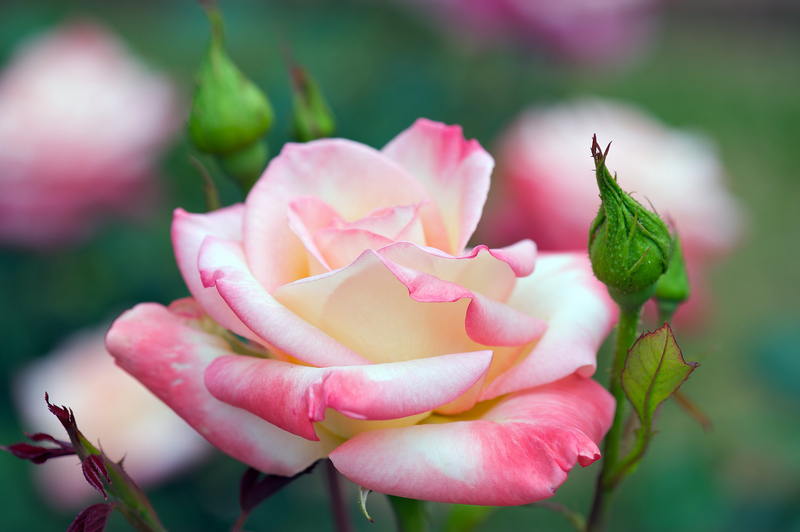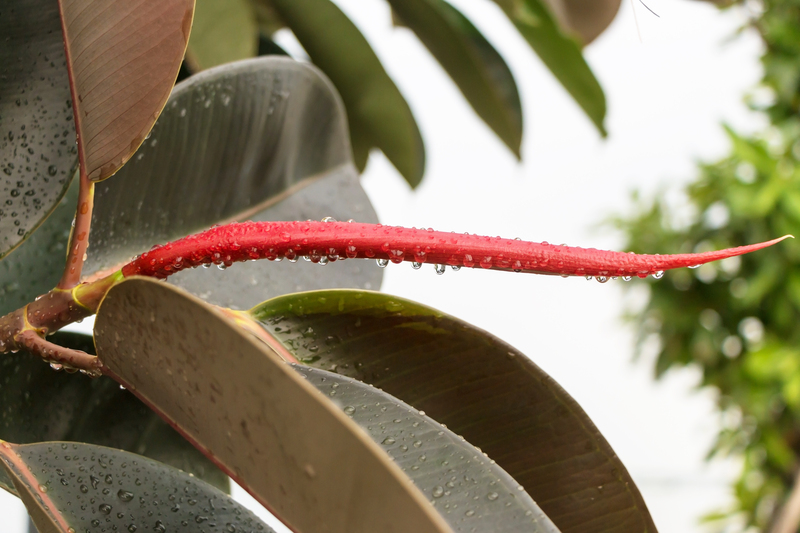Explore the basics of gardening with our 9 essential tips for newcomers
Posted on 27/05/2025
Explore the Basics of Gardening with Our 9 Essential Tips for Newcomers
Thinking about starting your first garden but not sure where to begin? Whether you have a sprawling backyard or a tiny balcony, gardening for beginners can be a rewarding and relaxing hobby that connects you with nature and yields fresh flowers, vegetables, or herbs. In this comprehensive guide, we'll explore the basics of gardening with 9 essential tips for newcomers to help you nurture your green thumb and create a flourishing garden.
Why Start Gardening? The Joy of Growing Your Own
Beginning your own garden is much more than just planting seeds--it's about cultivating patience, observing nature, and enjoying the fruits of your labor. Benefits of gardening include better mental health, improved air quality, access to fresh produce, and creating a beautiful outdoor (or indoor) space. For new gardeners, the journey starts with understanding simple steps and avoiding common mistakes. Here's how you can start on the right path with these beginner gardening tips!

1. Choose the Right Location
The foundation of successful gardening is picking the correct spot for your plants. Here are key factors to consider:
- Sunlight: Most vegetables and flowers need at least 6 hours of direct sunlight a day. Observe your yard or balcony for the sunniest spot.
- Accessibility: Pick a spot you can easily reach for watering, weeding, and harvesting.
- Drainage: Avoid places where water stands after rain since many plants dislike "wet feet."
Quick Tip:
Test your chosen area by checking sunlight patterns throughout the day and making sure water drains properly after a rainfall.
2. Understand Your Soil
Before you buy seeds or plants, explore your soil type:
- Soil Texture: Is it sandy, clayey, or loamy? Loam is ideal for most plants.
- pH Level: Use a soil test kit to see if your soil is acidic, neutral, or alkaline.
- Amendments: Improve poor soils with organic matter like compost or well-rotted manure.
If your backyard soil isn't great, raised beds or container gardening provide more control over conditions.
3. Start Small and Simple
It's tempting to envision a lush, expansive garden, but starting small is essential for gardening novices. Consider these approaches:
- Pick a manageable space: A 4x4-foot garden bed or a few pots are just right for beginners.
- Select easy crops: Leafy greens, herbs, and radishes grow quickly and are forgiving for first-timers.
- Choose your favorites: Grow what you love to eat or look at--motivation matters!
4. Select the Right Plants for Your Climate
Gardening basics require you to match plants to your climate and the season:
- Research your USDA Hardiness Zone: Find your zone online to check which plants thrive in your area.
- Read seed packets and labels: They offer vital info about temperature and sunlight needs.
- Get local advice: Ask neighbors, nurseries, or gardening clubs what grows best locally.
5. Master the Art of Watering
Improper watering is a common problem for beginner gardeners. Learn these golden rules:
- Water deeply but less often: This encourages roots to grow deeply.
- Morning is best: Water early so leaves dry before nightfall, reducing fungal diseases.
- Avoid overwatering: Check the top inch of soil--if it's dry, it's time to water.
Consider mulching with straw or wood chips to help soil retain moisture.
6. Feed Your Plants
Just like people, plants need nutrients to thrive. Here are basic feeding tips for new gardeners:
- Start with good soil: Enrich it with compost to provide a balanced diet for plants.
- Use slow-release fertilizers: These minimize risk of "burning" plants and gradually supply food.
- Follow package instructions: Too much fertilizer can do more harm than good!
7. Learn the Value of Mulching
Mulch is a gardener's secret weapon for healthy growth:
- Suppresses weeds: Blocks sunlight to weed seeds.
- Retains soil moisture: Reduces how often you need to water.
- Regulates temperature: Keeps roots cooler in summer and warmer in winter.
Spread a 2-3 inch layer of organic mulch around plants, avoiding stems to prevent rot.
8. Stay Vigilant with Weeding and Pests
Healthy gardens need regular maintenance. Staying on top of weeds and pests is crucial:
- Pull weeds early and often: Younger weeds are easier to remove.
- Monitor for pests: Check leaves regularly for damage or insects.
- Choose natural solutions: Handpicking, insecticidal soap, or companion planting are beginner-friendly and eco-friendly options.
Remember: Prevention is easier than cure!
9. Keep a Gardening Journal
One of the most overlooked gardening basics for beginners: Documenting your journey.
- Track plant progress: Note what worked, what didn't, and when you planted each crop.
- Record care routines: Monitor watering, fertilizing, and weather patterns.
- Learn from mistakes: Your notes will help ensure future successes--and avoid past failures.
Bonus Tip: Embrace Patience and Enjoy the Process!
Above all, remember that gardening is a journey, not a race. Plants grow at their own pace and sometimes things don't turn out as expected. That's part of the fun and learning process! Celebrate every small sprout and beautiful bloom.

Frequently Asked Questions About Starting a Garden
What is the best time of year to start my garden?
The ideal time depends on your climate and chosen plants. Most gardens are started in early spring after the last frost, but cooler regions may offer a shorter growing season. For indoor or container gardening, you can start year-round!
Can I garden if I don't have much space?
Absolutely! Small-space gardening in containers, window boxes, or vertical setups is perfect for beginners and urban dwellers. Herbs, salad greens, and even tomatoes can thrive in pots.
How much time does gardening take?
While the startup (planning, preparing soil, planting) can be time-consuming, maintaining a beginner's garden often takes as little as 10-20 minutes a day. It's a relaxing and enjoyable part of many gardeners' routines.
What tools do I need for beginner gardening?
- Hand trowel
- Gloves
- Watering can or hose
- Spade or shovel (for larger beds)
- Pruners (for flowers and shrubs)
Quality, basic tools make the job easier and set you up for success.
Conclusion: Start Your Gardening Adventure Today!
Exploring the basics of gardening with these 9 essential tips for newcomers will help remove uncertainty and get you off to a thriving, enjoyable start.
- Choose the right location
- Understand your soil
- Start small
- Select the right plants
- Master watering
- Feed your plants
- Mulch wisely
- Stay on top of weeding and pests
- Keep a garden journal
If you enjoyed this article, share it with fellow aspiring gardeners and bookmark this page for reference. Happy gardening!
Latest Posts
Gardening Ideas and Tips for Dog Lovers
Nine rapid-growth hedges that create instant backyard privacy
Must-Have Equipment for the True Gardening Connoisseur
Nurturing a Love for Nature with a Kid-Friendly Garden
Sowing the Seeds of Change: Gardening Against Climate Change

